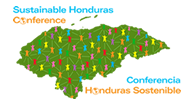купить аттестат школы
- This topic is empty.
-
AuthorPosts
-
Peterwem
GuestExposure to phthalates during pregnancy can affect a newborn’s brain development, study finds
[url=https://mining-bitcoin.ru/majnery/utl-club-otzyvy]красивый анальный секс[/url]Phthalates — the synthetic chemicals used in everyday products for food packaging, personal care, toys and more — have been linked to abnormal neurological development in infants.
Now, scientists may have discovered a biological pathway for how this phenomenon could occur. Researchers found that in utero exposure to phthalates is linked with altered metabolism of neurotransmitters and amino acids involved in brain maturation, according to a study published Wednesday in the journal Nature Communications.
The report is the first to use untargeted metabolomics — the study of all small molecules or metabolites in a biological system — to connect a mother’s phthalate exposure to a newborn’s metabolites, and those metabolites to neurological development, said senior study author Dr. Donghai Liang via email.
“This represents an important step forward in understanding how prenatal chemical exposures shape infant development at the molecular level,” added Liang, an associate professor of environmental health at Emory University’s Rollins School of Public Health in Atlanta.First introduced in the 1920s, phthalates are used to make plastics softer and more flexible, primarily in polyvinyl chloride (PVC) products such as vinyl flooring, medical devices, children’s toys, food packaging or shower curtains. The chemicals also help lubricate substances and carry fragrances in various personal care products including deodorant; nail polish; perfumes; hair gels, sprays or shampoos; soaps; and body lotions.
Phthalates are also endocrine disruptors that have been linked to preterm birth, infant genital abnormalities, childhood obesity, asthma, cancer, cardiovascular issues, and low sperm count and testosterone in men.
“We conducted this study because phthalates are everywhere in our daily lives,” Liang said, hence their nickname “everywhere chemicals.”
Harming infant health
The findings are based on mother-newborn pairs enrolled in the Atlanta African American Maternal-Child Cohort between 2016 and 2018. In urine samples collected from 216 mothers between eight weeks and 14 weeks of gestation at visit one and 145 participants between 24 and 30 weeks’ gestation at visit two, the authors measured eight phthalate metabolites. Participants were around age 24 on average, and their levels of some phthalate metabolites were higher than the average determined by the National Health and Nutrition Examination Survey.Within a day or two of birth, the authors collected the babies’ blood via a heel stick.
The team found prenatal phthalate levels were associated with lower levels of tyrosine, an amino acid and precursor to the thyroid hormone thyroxine. Thyroxine was also abnormally low in those with in utero phthalate exposure, and low thyroxine has been previously associated with greater vulnerability to illness and neurodevelopmental issues in newborns, the authors said. Tyrosine is also a precursor to the neurotransmitters dopamine, norepinephrine and epinephrine, all of which partly contribute to the body’s fight-or-flight response. Low levels of these neurotransmitters can lead to various problems, including anxiety, depression and trouble focusing.
Prenatal phthalate exposure was also linked with lower levels of the essential amino acid tryptophan, which converts into 5-hydroxytryptophan (or 5-HTP), which then turns into serotonin. Both 5-HTP and serotonin were also low. Serotonin has several critical roles in the body, including mood regulation, sleep, learning, memory, digestion and the body’s response to stress. Previous research has linked low serotonin with mood disorders such as depression and anxiety, sleep problems, and digestive issues.
Ernestcok
Guest‘We don’t want the American Dream for our kids’: Why this couple left the US for Ecuador with their children four years ago
[url=https://advokat-zp.in.ua/ugolovnye-dela.html]юрист з військового права Запоріжжя[/url]
They’d never even visited Ecuador before, but Brittany and Blake Bowen, from the United States, decided to move to the South American country in 2021 to give their four children a completely different upbringing.The Bowens, who were previously based in the state of Washington, have been living in Loja, a small city based in the southern section of the Andes Mountains, ever since, and say that they are in it for the long haul.
“We love this little country,” Brittany tells CNN Travel. “We hope that maybe we’ll have grandkids here one day.”
Before the move, the couple, who’ve been married for nearly 17 years, say that they were becoming increasingly concerned about the pressures placed on children by “modern American society” and wanted to try something new.“We did not like what we’d seen develop over the course of the last couple decades…” adds Brittany, explaining that they felt that young people in the United States were becoming “more isolated.”
“We weren’t confident that our kids would enjoy the same sort of potential trajectory that previous generations had shared.
“And the more we considered things like that, the more we wondered, ‘Is that even what we want? Do we even want them to be on a fast track to the American Dream?”
The couple were also frustrated with living what they describe as the “standard American life.”
“Long commutes and never enough money,” says Blake. “All those usual problems… I was working in a career that was very time consuming, and took me away from home a lot. So we didn’t want that anymore.”
So why did they choose Ecuador as their “new home”?
-
AuthorPosts
